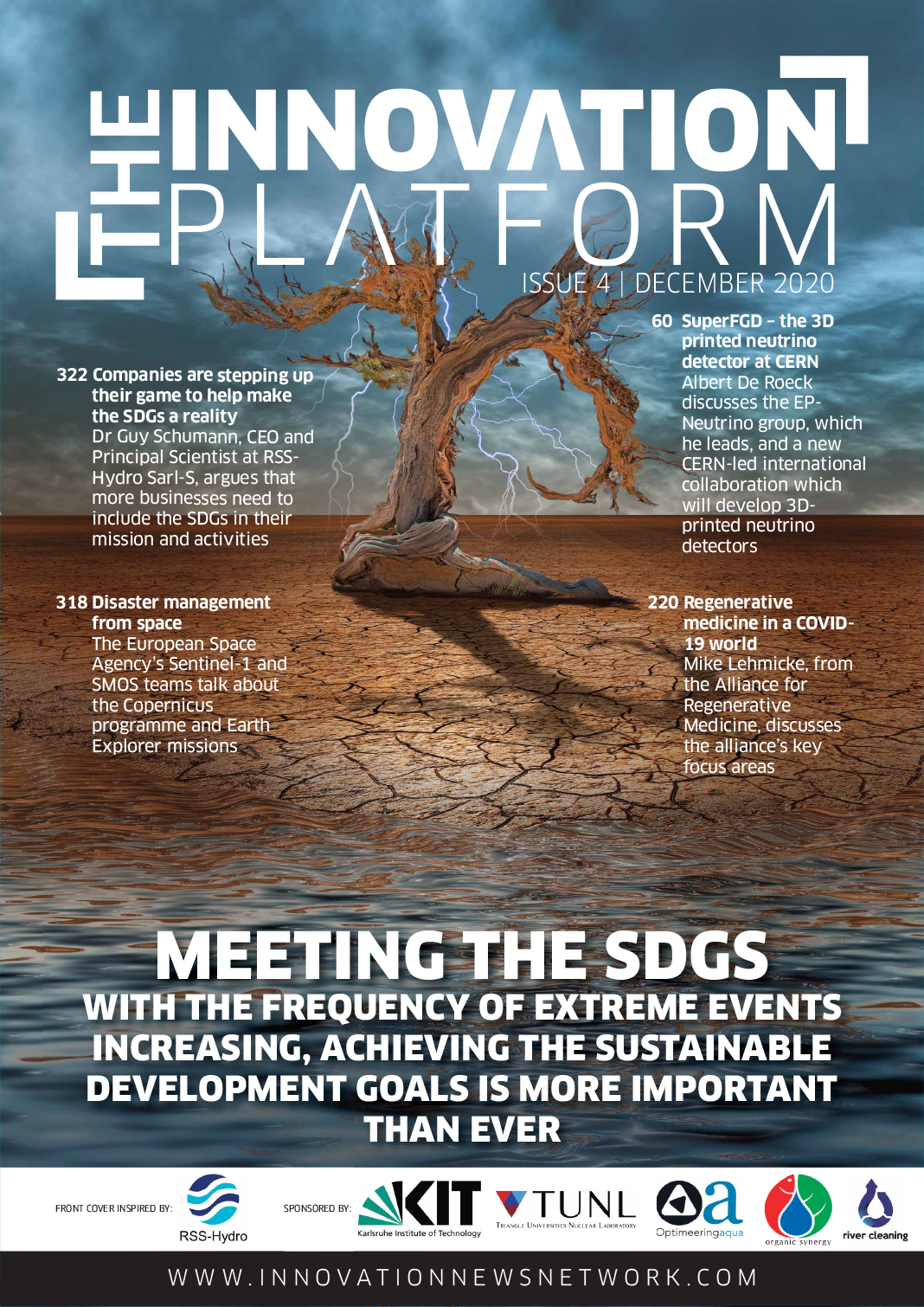The fourth edition of The Innovation Platform examines innovative research to further the fields of physics, space science, aquaculture, healthcare, and more.
For the better part of the last year, we have all seen our lives change as the coronavirus first emerged before going on to plague the world. COVID-19 has changed the way we live and the way we work; it has cost millions of lives; and it is having severe socio-economic impacts as workplaces close, certain sectors are forced to stop plying their trade in a combined effort to stem the flow of the virus, and people are forced to spend more of their time at home than perhaps ever before. The changes we have seen during 2020 have almost all been negative in one way or another as we have all faced restrictions on our everyday lives which, at least at first, were alien to us.
And yet, as I have said in previous introductions to this publication, there is a glimmer of hope; a hope that when we emerge from the pandemic we will be progressing towards a ‘new’ future where we have learned (at least some of) the lessons of the past. This future will have sustainability at its heart; it will be one in which a greener view is taken to progress and where value is placed on the innovations that help rather than hurt the health of people and the world around them.
This sustainable revolution, which we are already seeing the beginnings of in Europe through things like the European Green Deal and the Recovery Fund, holds much promise and will be crucial if we are to address grand challenges such as climate change and poverty, perhaps via the United Nations’ Sustainable Development Goals (SDGs). These 17 key targets offer a path to ‘peace and prosperity for people and the planet, now and into the future’. But co-ordinated action on the part of all stakeholders is going to be required to achieve them.
Many of the challenges currently facing society (from climate change and extreme weather events to COVID-19) and some of their solutions (from circular- and bio-based economy approaches to developments in materials and chemistry, amongst many others) can be found inside the pages of this edition of The Innovation Platform. This publication also offers a wealth of other articles and opinions from and on a range of sectors, from aquaculture to physics, from space to cancer, and from transport to neuroscience, illustrating the progress that is being made in the R&D&I space in spite of the on-going pandemic.
The Space & Astrophysics section, which opens this edition, offers articles on several different ESA missions, as well as an article from Dr Pete Worden, the former Director of NASA’s Ames Research Center (ARC). The following section on nuclear and particle physics includes interviews with TRIUMF’s Professor Jonathan Bagger, as well as numerous other articles, including one from CERN and another from the Institute of High Energy Physics of the Chinese Academy of Sciences.
Later in the Research & Development section, you will find further sub-sections on materials, digital, quantum sensing, energy, and transport.
Within the Health & Biology section, sub-sections on areas such as COVID-19, cancer, diabetes, and biomaterials, amongst others, provide a snapshot of some of the important work taking place. A special feature on vaccines is also included here. This is a selection of interviews which I had the pleasure of conducting alongside our friends at the Active Citizenship Network on issues such as vaccine accessibility, hesitancy, and manufacturing in the wake of the coronavirus pandemic.
The Environment & Sustainability section then goes on to include articles on areas such as marine plastics (with an interview with the International Union for Conservation of Nature’s Joao Sousa, amongst others), climate change, aquaculture, water, the bioeconomy, and agriculture.
These are just a few highlights from what can be found in the following pages, and I hope that you find them all as interesting and informative as I have found in their creation. I also welcome any comments you may have.
Clifford Holt
International Editor
The Innovation Platform


